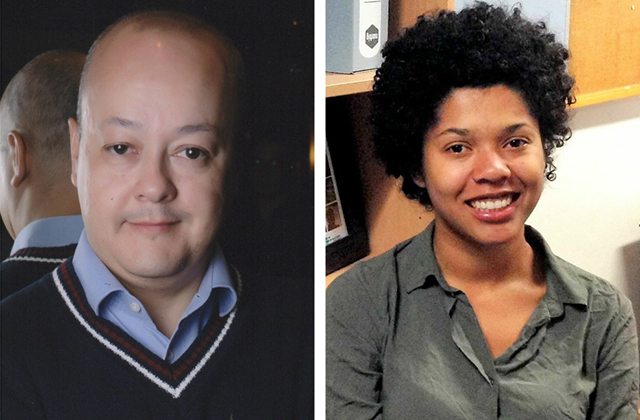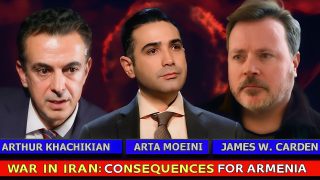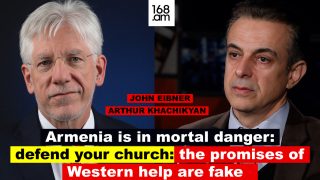Truth, Memory and Denial: Importance of Free Speech

On February 1st, the Polish Senate passed a controversial law that would make it illegal for anyone who blames the Polish state for collaborating with the Nazis for committing the Holocaust in the Polish territory. Such a law provides for up to three years of imprisonment or fine for anyone who uses the term “Polish death camps” except in academic research and artistic representations. However, in the same week, several international resources reported an investigation by the Institute of National Remembrance (IPN), affiliated with the Polish government and founded in 1999, responsible for investigating – scientifically and legally – the history of Poland under the German and Soviet occupations.
By having prerogatives and prosecution powers for war crimes, they are responsible for investigating the mass executions and ethnic cleansing murders that occurred during the German occupation (1939-1945) and crimes committed against the civilian population during the Warsaw revolt in 1944. The controversial point between the law passed by the Polish Senate this week and the investigation being carried out by the IPN consists in the fact that, even with the attempt to deny the facts, that there is a list of 1,600 former SS officers (not Polish) who committed crimes in concentration camps and are being sought for a future trial. This document was sent to INTERPOL, which has received requests for investigation of 400 such cases, and another 1,200 will be sent shortly.
In this sense, we could say that the truth and the collective memory considerably depends on the way the history is narrated; by whom the history is narrated and, also, it depends on the vestiges, forensic evidences and expert conclusions after the investigations. As an example, the relevant and important efforts made by Armenians, non-Armenian supporters, archaeologists, genocide scholars and so on to make known by the world the extermination process of the Armenian people by the Ottoman Empire (1915-1923) was essential for the world debate about the recognition of the mentioned massacre by the correct expression: genocide. We want to say that the construction of the memory related to a historical fact fully demonstrated is usually a result of many and different efforts to make the experience a permanent alert for humanity, from the survivors and their narratives (sometimes even from the perpetrators’ narrative); from the decisions of the international courts (like the Nuremberg and Tokyo Trials; the Einzatsgruppen and SS trials or the Rwanda and ex-Yugoslavia Trials).
The normative production and the approval of acts or any law related to any kind of regulation of the right to express any idea connected to historical facts like the holocaust or any other genocide can become a hot topic due to the fact that it involves sensitive and painful situations and memories, added to the historical responsibility of some states, institutions and even individuals and communities. Not infrequently, a debate about the truthfulness of a well-established historical fact can affect the memory of thousands of victims who can no longer manifest themselves as well as impact on their descendants. The purposeful manipulation of each information component of a wide spectrum of occurrences, vestiges and evidence to deny the actual fact itself, therefore constitutes the continuation of the violation of human rights of the mentioned victims and, from a broader perspective, a violation of the humanity itself. To deny the Holocaust or the Armenian genocide; to deny the genocide of the indigenous nations in the Americas; of the Africans during the slavery regimes or of the Aboriginal peoples in Oceania, constitutes a repetition of the mentioned genocides, under a different perspective.
It is evident that a supposed claim that during the Holocaust practiced on European soil Poles would have joined the Nazis to give way to their anti-Semitism by massacring Jews alongside the German marauders, it does not seek to destroy the image of a country and its people, but to throw light on a historical fact, positioning truth and human experience above other interests. It has long been known that European anti-Semitism harnessed Hitler’s dominance over Europe to massacre Jews in their Nazi Germany-occupied countries. This was the case in Eastern Europe. This was also the case in Poland, as in the case of the Jedwabne Pogrom, in which the Jewish community of Jedwabne was forever destroyed, including about 1,600 Jewish victims – men, women and children – were burned alive (http: //www.worldpress.org/article.cfm/the-jedwabne-massacre), just to give an example.
Jan Grabowski demonstrates in his work “Hunt for the Jews” as militias and Polish citizens (the anti-Semites, evidently) collaborated for the extermination of the Jews of Europe, as it happened in other countries. For researchers, “…the extermination of European Jews was not only a German deed, but also a result of the involvement of many other nationalities, allies, sympathizers and fellow travellers. Latvian policemen, Lithuanian “shooters” (“shaulai”), Ukrainian militias and guardsmen, Polish mobs from Jedwabne or Radziłów, French or Belgian volunteers for the SS, but also their civilian and uniformed fellow citizens, who robbed Jews and locked them in prisons…” (https://muse.jhu.edu/chapter/994810).
It does not mean that Poland, as a nation, got together with the Nazis to execute the extermination of the European Jews and of other minorities. In fact, after the invasion of Poland by the Nazis and the USSR, Poland ceased to exist as a nation-state. Unlike Poland, other European States acted alongside Nazi Germany as perpetrators of the Holocaust as political entities. Many Polish heroes saved thousands of Jew victims, as the Polish nurse Irena Sendler – “the Warsaw ghetto angel” – who saved around 2,500 Jewish children from death and recognized by Yad Vashem with Righteous Among the Nations medal in 1965 (https://www.ushmm.org/information/press/in-memoriam/irena-sendler-1910-2008). Besides that, we cannot forget either that, during the Holocaust, the number of polish murdered by the Nazis is equivalent to the number of Jews also murdered by the Nazis in the Polish territory (around 3 million). This new law is probably an attempt to confront Germany because of disagreement between the two nations on the need to receive quotas of immigrants. An unnecessary law that can cause problems related to memory and free speech.
The scope of the search for the truth, the archaeology of repression and genocides is, in fact, the consolidation and knowledge of the experience so that the peoples of the earth can consolidate new and perennial times of peace without reiterating the mistakes already made in the recent past.
After all, as it is written in the 9/11 Memorial and Museum, in New York City, as Virgil taught, “…no day shall erase you from the memory of time.”
Here is the importance and reason of the fundamental right of free speech: to know the truth, to establish memory and to consolidate tolerant coexistence.
Flávio de Leão Bastos Pereira.
PhD in Economical and Political Law
Professor of Human Rights at Mackenzie Presbyterian University – São Paulo/Brazil (Law School)
Member of the International Association of Genocide Scholars (IAGS).
Member of the Roast of Experts of the International Nuremberg Principles Academy (Germany)
Coordinator of the Genocide Studies Group – GENOS at the School of Law of the Mackenzie Presbyterian University.
Lígia de Souza Cerqueira
Graduate student at Mackenzie Presbyterian University (Law School).
Visiting research student at The Australian Centre for Agriculture and Law – University of New England.
Participant in GENOS (genocide study group) at Mackenzie Presbyterian University

























